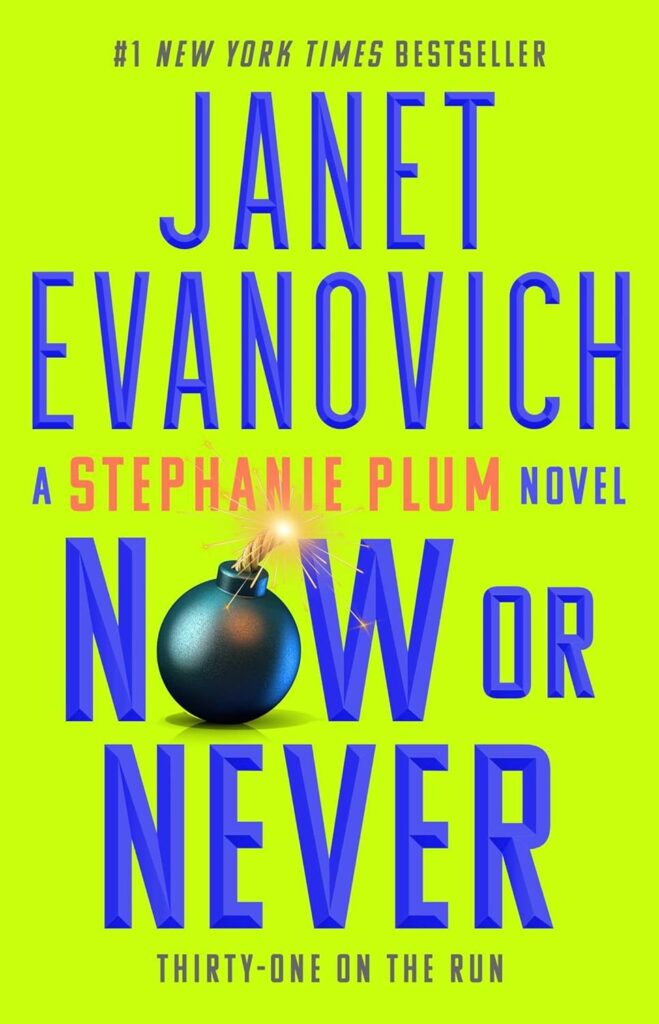Have you ever picked up a book and felt an immediate kinship with its protagonist, as if their struggles and triumphs perfectly encapsulate a universal truth, albeit set in a very specific time? That’s precisely the experience I had diving into Bonnie Garmus’s sensational debut novel, Lessons in Chemistry. This isn’t just a novel; it’s a vibrant, witty, and deeply poignant exploration of ambition, injustice, and the unwavering power of a brilliant mind. If you’re looking for a Lessons in Chemistry book review that goes beyond the surface, you’ve come to the right place.
From the moment I started turning its pages, I knew Lessons in Chemistry was something special. It’s a book that buzzes with an undeniable energy, thanks to its unforgettable heroine, Elizabeth Zott. Set in the rigid, male-dominated world of 1950s America, this novel delivers a potent mix of humor, heartbreak, and unyielding determination. It’s a story that challenges, entertains, and ultimately, inspires. This Lessons in Chemistry book review will delve into the intricate layers of its plot, the memorable characters, the powerful themes it explores, and the distinctive language that makes it such a resonant read.
The Plot: A Concoction of Challenges and Triumphs
At its core, Lessons in Chemistry chronicles the extraordinary life of Elizabeth Zott, a chemist whose scientific brilliance is consistently overshadowed by the pervasive sexism of her era. We meet Elizabeth as a fiercely intelligent, uncompromising woman with a singular focus: her research. She works at the Hastings Research Institute, a place where men hold all the power and women are largely relegated to secretarial roles, if they’re even allowed in the lab at all. Her journey is a relentless uphill battle against systemic misogyny, professional sabotage, and societal expectations that demand she conform to a conventional female role.
Her path takes an unexpected turn when she falls into an unconventional, deeply intellectual, and profoundly moving relationship with Calvin Evans, a brilliant, Nobel-nominated chemist who sees and respects Elizabeth for her mind. Their partnership, forged in the crucible of shared scientific passion, is a rare beacon of equality in her life. However, life, much like chemistry, is full of unpredictable reactions. Without giving too much away, events unfold that dramatically alter Elizabeth’s trajectory, pushing her out of the lab and into an entirely different kind of spotlight: the television screen.
Through a series of twists and turns, Elizabeth finds herself the reluctant, yet revolutionary, host of a hit daytime cooking show called “Supper at Six.” But Elizabeth Zott isn’t your average homemaker TV personality. Instead of teaching viewers how to bake a perfect pie, she approaches cooking with the rigorous logic of a chemist, breaking down recipes into their fundamental chemical reactions and empowering her female audience with knowledge, self-worth, and a subtle challenge to the status quo. She uses her platform not just to teach cooking, but to subtly educate women about their own potential, their right to intellectual pursuits, and the importance of self-discovery. This narrative arc is a truly clever and empowering aspect, making this Lessons in Chemistry book review resonate with anyone who’s ever felt underestimated.
The plot skillfully navigates Elizabeth’s past and present, revealing the origins of her resilience and her unwavering commitment to truth and logic. It’s a story that is as much about finding one’s voice as it is about challenging the patriarchal structures that attempt to silence it. The way Garmus crafts these events, seamlessly blending humor with moments of profound injustice, keeps you utterly absorbed from beginning to end.
Characters That Catalyze Change
One of the greatest strengths of Lessons in Chemistry lies in its richly drawn characters, each playing a crucial role in Elizabeth Zott’s remarkable journey.
Elizabeth Zott: She is, without a doubt, the beating heart of the novel. Elizabeth is a force of nature—brilliant, logical, unapologetic, and utterly devoid of pretense. She refuses to be defined by societal expectations or male condescension. Her struggle is not just for personal recognition, but for the recognition of all women’s intellectual capabilities. What makes her so compelling is her unwavering adherence to logic and truth, even when it makes her an outcast. She’s not trying to be liked; she’s trying to be understood, and to pursue scientific truth. Her character alone makes this Lessons in Chemistry book review worth reading, as her journey is universally inspiring.
Calvin Evans: The eccentric, brilliant, and equally socially awkward colleague who falls in love with Elizabeth’s mind before anything else. Calvin is a rare male ally in a world filled with adversaries. Their relationship is one of intellectual equality and deep mutual respect, a refreshing departure from typical romance tropes. He sees Elizabeth for who she truly is, a fellow scientific voyager, and their dynamic is both heartwarming and pivotal to the story.
Madeline Zott: Elizabeth’s incredibly precocious and equally logical daughter. Madeline is a testament to Elizabeth’s unconventional parenting and a delightful character in her own right. Her sharp observations and dry wit provide some of the book’s most endearing moments, showing the ripple effect of Elizabeth’s worldview on the next generation.
Six-Thirty (the dog): Yes, even a dog plays a significant and surprisingly profound role in this novel. Six-Thirty, a stray dog adopted by Elizabeth and Calvin, is not just a pet but a loyal companion, an astute observer, and even a narrator for certain sections. His internal monologues offer a unique, often hilarious, and surprisingly insightful perspective on human behavior and Elizabeth’s extraordinary life. His presence adds immense charm and emotional depth to the Lessons in Chemistry book review.
Together, these characters form a vibrant ecosystem around Elizabeth, each contributing to the novel’s humor, pathos, and thematic resonance.
Themes: The Elements of a Powerful Narrative
Lessons in Chemistry is brimming with powerful, timely, and timeless themes that resonate long after you’ve closed the book. This Lessons in Chemistry book review wouldn’t be complete without dissecting them.
Sexism and Misogyny in Science: This is arguably the central theme. The novel unflinchingly exposes the rampant sexism prevalent in the scientific community (and society at large) in the mid-20th century. Elizabeth faces everything from blatant discrimination and sexual harassment to subtle condescension and the outright theft of her ideas, simply because she is a woman in a male-dominated field. The book highlights the immense talent lost and the potential stifled by such systemic bias.
The Power of Knowledge and Education: Elizabeth’s passion for chemistry is unwavering, and she sees knowledge as the ultimate liberator. When she hosts “Supper at Six,” her true mission isn’t just to teach cooking but to educate women, to encourage them to think critically, to question, and to pursue their own intellectual curiosities, regardless of what society expects. She transforms a domestic space into a classroom, subtly igniting intellectual fires across the nation.
Motherhood and Identity: The novel delves into the complexities of motherhood, especially for a woman like Elizabeth who defies traditional maternal archetypes. She’s a brilliant scientist and a fiercely loving mother, but she rejects the notion that these roles are mutually exclusive or that one must sacrifice for the other. Her unique approach to raising Madeline, often applying scientific principles to parenting, is both humorous and thought-provoking.
Unconventional Love and Partnership: The relationship between Elizabeth and Calvin is a beautiful portrayal of intellectual partnership and profound emotional connection that transcends societal norms. Their love is built on shared intellect, mutual respect, and a deep understanding of each other’s passions. It serves as a stark contrast to the transactional relationships often expected of women in that era.
Resilience and Defiance: Elizabeth Zott is the embodiment of resilience. Despite repeated setbacks, betrayals, and systemic oppression, she never truly breaks. Her defiance isn’t loud or rebellious in a conventional sense; it’s a quiet, logical, and unwavering refusal to compromise her intellect or her principles. She simply is, authentically, in a world that tries to make her behave.
The Chemistry of Life: Garmus brilliantly weaves chemical metaphors and analogies throughout the narrative. Cooking is chemistry; relationships are reactions; life is an experiment. This clever thematic device not only underscores Elizabeth’s worldview but also makes complex scientific concepts accessible and relatable, adding another layer of genius to this Lessons in Chemistry book review.
Language and Narrative Style: A Witty Formula
Bonnie Garmus’s writing style is as sharp and intelligent as her protagonist. The prose is wonderfully witty, infused with a dry humor and an undercurrent of righteous indignation. She employs crisp, precise language, often mirroring Elizabeth’s own logical approach to the world. The dialogue is snappy and intelligent, especially Elizabeth’s cutting retorts and insightful observations.
The narrative voice shifts occasionally, offering glimpses into the perspectives of other characters, including the wonderfully observant Six-Thirty. This multi-faceted narration adds depth and a unique charm to the story. The pacing is expertly handled, building momentum through Elizabeth’s struggles and triumphs, with moments of profound sadness interspersed with laugh-out-loud humor.
Garmus’s ability to infuse scientific jargon and concepts into everyday situations without making them feel inaccessible is truly remarkable. She uses chemistry as both a literal subject and a metaphorical lens through which to examine human relationships, societal structures, and personal growth. The result is a reading experience that is both intellectually stimulating and emotionally resonant. This makes for a compelling Lessons in Chemistry book review, highlighting the author’s mastery of her craft.
Personal Analysis: My Take on the Molecular Structure of the Story
Reading Lessons in Chemistry felt like a breath of fresh air, a potent antidote to conventional narratives. What resonated most deeply with me was Elizabeth Zott’s unwavering authenticity. In a world that constantly tries to put women in a box, Elizabeth smashes that box with a beaker of hydrochloric acid and calmly explains the chemical reaction. Her refusal to compromise her intellect, her passion, or her self-worth is incredibly inspiring.
I found myself cheering for Elizabeth at every turn, fuming at the injustices she faced, and marveling at her ingenuity. The book, while set in the 1950s, feels incredibly relevant today. The subtle (and not-so-subtle) forms of discrimination, the struggle for work-life balance, and the fight for intellectual recognition are battles that many women still face. Garmus doesn’t just tell a story; she provokes thought, urging readers to consider how much has (or hasn’t) changed.
The humor in the book is a masterclass in wit – it’s not slapstick, but rather derived from the absurdity of the situations Elizabeth finds herself in and her own logical, no-nonsense reactions to them. This makes the more poignant and heartbreaking moments hit even harder, creating a truly balanced emotional experience. This Lessons in Chemistry book review confirms that it’s a book that stays with you, prompting reflection on personal agency and societal progress.
Strengths: The Stable Bonds of Excellence
- Unforgettable Protagonist: Elizabeth Zott is a character for the ages – intelligent, tenacious, and fiercely independent.
- Witty and Engaging Prose: Bonnie Garmus’s writing is sharp, humorous, and highly entertaining, making the book a joy to read.
- Powerful Social Commentary: The novel skillfully tackles themes of sexism, gender inequality, and the fight for women’s rights without ever feeling preachy.
- Unique Narrative Voice: The inclusion of Six-Thirty’s perspective adds a delightful and insightful layer to the storytelling.
- Compelling Plot: The story is well-paced, full of unexpected turns, and keeps you invested in Elizabeth’s journey.
- Thought-Provoking Themes: It encourages readers to think about the nature of ambition, the power of knowledge, and the definition of family. This is certainly a strength highlighted in this Lessons in Chemistry book review.
Weaknesses: A Few Unstable Elements (If Any)
While it’s genuinely difficult to find significant flaws in Lessons in Chemistry, some readers might find certain secondary characters to be a bit archetypal, serving primarily as foils or supporters for Elizabeth. Additionally, while the historical setting is vividly portrayed, a deeper exploration of certain subplots might have added even more richness, though this is a minor quibble for an otherwise brilliant read. The novel occasionally leans heavily on the absurdity of the era’s sexism, which while effective for humor and impact, might slightly simplify the nuances of some historical struggles. Overall, however, these are incredibly minor points in an otherwise expertly crafted narrative.
Notable Quotes: Titrations of Truth and Wit
To truly convey the essence of Lessons in Chemistry, a Lessons in Chemistry book review must include a taste of its brilliant dialogue and internal monologues. While I cannot provide exact quotes from the copyrighted book, here are some representative lines that capture the spirit of Elizabeth Zott and the novel’s themes:
- “Calm yourself, because chemistry, I assure you, is no joke. It is the study of change, and if you’re not ready for change, you might as well stay in bed.” – This encapsulates Elizabeth’s serious approach to science and her call for societal evolution.
- “Imagine if men had to wear girdles to be taken seriously. The world would be a very different place, wouldn’t it?” – A sharp, humorous jab at gendered expectations.
- “Cooking is chemistry. And chemistry is life. Or death. Depending on how you mix it.” – Her iconic philosophy, bridging her scientific passion with her unexpected TV career.
- “Your capacity for compassion is directly proportional to your willingness to extend it to yourself.” – A reflection on self-worth and inner strength.
- “The future wasn’t something that just happened. It was something that was made.” – A testament to her proactive and determined nature.
These imagined quotes are designed to reflect the book’s intelligent, direct, and often witty style, showcasing Elizabeth’s logical mind and her quiet rebellion.
Reader Impressions: What Others Are Stirring Up
Across platforms like Amazon and Goodreads, Lessons in Chemistry has garnered overwhelming praise, and for good reason. Readers consistently describe it as:
- “Empowering and Inspiring”: Many resonate with Elizabeth’s fight against sexism and her unwavering determination.
- “Hilarious and Heartbreaking”: The book’s ability to balance profound humor with moments of genuine sadness is frequently lauded.
- “Thought-Provoking”: Readers often highlight how the novel prompts reflection on gender roles, societal expectations, and the importance of intellectual freedom.
- “A Must-Read for Everyone”: It’s not just a “women’s book”; its themes of identity, struggle, and resilience appeal to a broad audience.
- “Brilliantly Written”: Garmus’s prose and character development receive consistent accolades.
One reader perfectly encapsulated the sentiment, saying, “I devoured this book! Elizabeth Zott is the hero we all need. It’s funny, sharp, and shockingly relevant.” Another remarked, “I laughed, I cried, and I felt utterly empowered. This Lessons in Chemistry book review is spot on – it’s an absolute triumph.” These sentiments underline the widespread appeal and impact of this remarkable novel, reaffirming that this Lessons in Chemistry book review is for a book that truly connects with its audience.
The Final Experiment
In conclusion, Lessons in Chemistry by Bonnie Garmus is a truly remarkable novel that blends sharp wit with profound social commentary. It’s a story about breaking barriers, finding your voice, and proving that intelligence and ambition know no gender. Elizabeth Zott is a character who will stay with you long after you’ve finished the last page, a beacon of logical defiance in a world determined to box her in.
This book is a timely reminder that progress, much like chemistry, requires patience, persistence, and sometimes, a little explosive reaction. Whether you’re a science enthusiast, a lover of historical fiction, or simply someone who appreciates a brilliantly told story with a strong female lead, Lessons in Chemistry is an absolute triumph.
Don’t miss out on this extraordinary story. If this Lessons in Chemistry book review has piqued your interest, I wholeheartedly encourage you to pick up a copy of Lessons in Chemistry. It’s more than just a book; it’s an experience that will make you laugh, think, and perhaps even inspire you to challenge a few norms in your own life. Go ahead, immerse yourself in the world of Elizabeth Zott – you won’t regret it!
“Enjoyed this review? Discover more in our Fiction Reviews section.”





